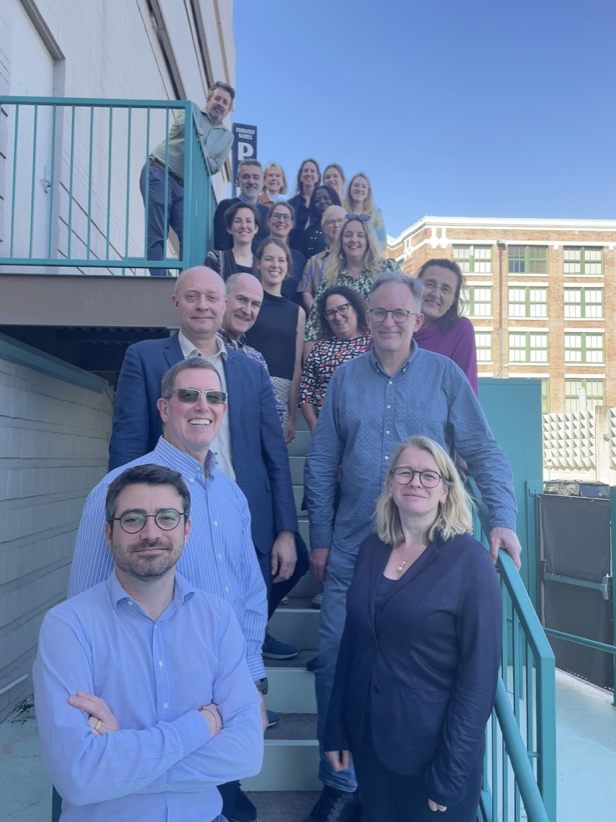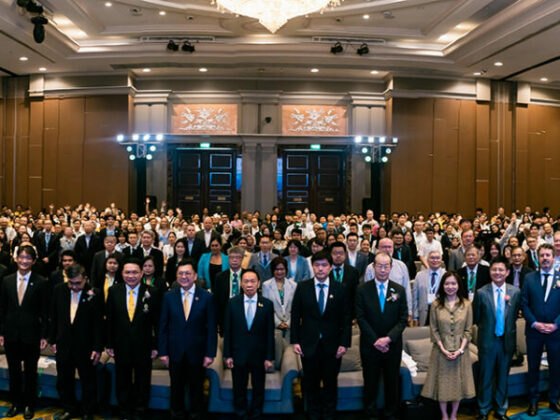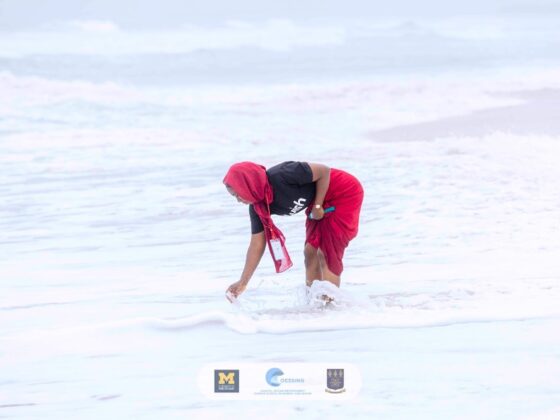The Ocean Sciences Meeting 2024, the flagship ocean sciences conference for the larger ocean-connected community, was held in New Orleans, United States, from 18 to 23 February 2024. To showcase the progress of its implementation on the eve of the 2024 Ocean Decade Conference, the United Nations Decade of Ocean Science for Sustainable Development 2021-2030 (the ‘Ocean Decade’) took part in the programme with two thematic events.
Every two years, the ocean community gathers at the Ocean Sciences Meeting to share current research and findings, collaborate on priorities and catalyse new partnerships. It was endorsed as an official Decade Contribution in 2021.
This year’s event brought together 6,000 attendees from over 75 countries. Under the theme “Inspire. Discover. Restore.”, it outlined a set of actions aimed at inspiring ocean professionals to explore new frontiers in ocean science, uncover new research and share knowledge of our interconnected ocean.
During two dedicated panel discussions, the Ocean Decade elaborated on its strategic ambition setting process, as well as its commitment to developing a comprehensive digital representation of the ocean. The panelists underscored a collaborative approach and the inclusion of new voices in advancing these initiatives across disciplines and geographic boundaries.
Vision 2030: A clear and common ambition for the Decade Challenges
The Ocean Decade’s strategic ambition setting process, Vision 2030, was presented during a Town Hall event on 23 February. As a guiding principle of the Ocean Decade, Vision 2030 will determine a common measure of success for each of the 10 Decade Challenges in the form of white papers, following a year-long process to identify current trends, gaps and priority user needs across 10 Working Groups.

“This work aims not only to define the objectives for each Challenge but also translate them into concrete and achievable actions,” explained Alison Clausen, Ocean Decade Deputy Coordinator. “This roadmap is designed to ensure the relevance of the Ocean Decade to 2030 and beyond, despite unpredictable and uncertain times.”
On the heels of a one-month open review process of the white papers which concluded on 22 February, the first in-person gathering of the Working Groups’ Co-Chairs took place on 24-25 February, offering valuable insights into bolstering synergies among the groups and papers.
The experts reviewed the contributions from the global ocean community and assessed their inclusion in the draft white papers that will be presented and discussed during thematic ‘Science Solution Forums’ at the 2024 Ocean Decade Conference in Barcelona. Furthermore, the meeting addressed the general content and structure of the outcomes report that will complement the 10 papers.
Trusted, inclusive and interconnected ocean data to support sustainable management
Through its Challenge 8: Create a digital representation of the ocean, the Ocean Decade strives to catalyse a solution-oriented, global transformation to achieve the digital ocean ecosystem we need.
On 20 February, during a specialized workshop “Building a trusted, inclusive, and interconnected global ocean data and information system”, the Ocean Decade presented its Data and Information Strategy as well as the initial components for a globally distributed ocean information ecosystem.

At the forefront of ocean observation, the Global Ocean Observing System (GOOS) and European Marine Observation and Data Network (EMODnet) – the latter being a Decade Implementing Partner – provided examples of how their organizations align with the Ocean Decade Data and Information Strategy through the use of data and metadata standards, integration with existing data repositories, data ingestion and sharing services.
The discussions underscored the importance of fostering trust across the marine knowledge value chain, building appropriate capacity, ensuring equity and promoting long-term engagement among stakeholders. These aspects will shape the development of the Ocean Decade Data Strategy Implementation Plan to be unveiled at the 2024 Ocean Decade Conference.
The Decade Coordination Office for Ocean Data Sharing showcased various resources designed to assist the scientific community with data management and capacity building. Notably, the DCO introduced the establishment of a virtual data helpdesk, aimed at providing assistance and guidance to users navigating ocean data resources.
For more information, please contact:
Ocean Decade Communications Team (oceandecade.comms@unesco.org)
***
About the Ocean Decade:
Proclaimed in 2017 by the United Nations General Assembly, the UN Decade of Ocean Science for Sustainable Development (2021-2030) (‘the Ocean Decade’) seeks to stimulate ocean science and knowledge generation to reverse the decline of the state of the ocean system and catalyse new opportunities for sustainable development of this massive marine ecosystem. The vision of the Ocean Decade is ‘the science we need for the ocean we want’. The Ocean Decade provides a convening framework for scientists and stakeholders from diverse sectors to develop the scientific knowledge and the partnerships needed to accelerate and harness advances in ocean science to achieve a better understanding of the ocean system, and deliver science-based solutions to achieve the 2030 Agenda. The UN General Assembly mandated UNESCO’s Intergovernmental Oceanographic Commission (IOC) to coordinate the preparations and implementation of the Decade.
About the IOC/UNESCO:
The Intergovernmental Oceanographic Commission of UNESCO (IOC/UNESCO) promotes international cooperation in marine sciences to improve management of the ocean, coasts and marine resources. The IOC enables its 150 Member States to work together by coordinating programmes in capacity development, ocean observations and services, ocean science and tsunami warning. The work of the IOC contributes to the mission of UNESCO to promote the advancement of science and its applications to develop knowledge and capacity, key to economic and social progress, the basis of peace and sustainable development.


